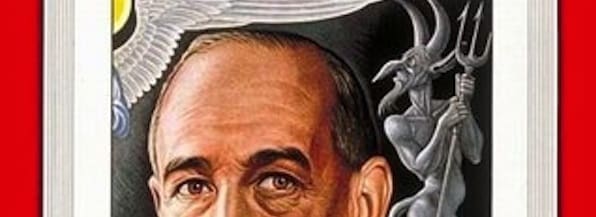


If you are human, because I appreciate you might not be and I have no problem with that, The Screwtape Letters is worth reading. Lewis wrote one of his most influential books, The Screwtape Letters, in which a senior devil, Screwtape. The Screwtape Letters really did make me think, and even putting aside the Christian doctrine, there is still a great deal said about basic morality and decency that applies to all humans, regardless of belief. In 1942 the Christian writer and Oxford don C.S. Screwtape himself would now be an advertising executive, I imagine, bombarding us with ever bigger, flashier ways to part with our cash and place greater and greater importance on the ownership of non-essential `things'. Chapter/Letter XXV in particular hit home to me as being highly relevant to 21st Century society and the almost hedonistic consumerism that so dominates our lives. Some of the passages in this book are quite prophetic in many ways, although they refer to human nature as it has always been. We are chastised by means of reverse psychology in recognising traits we have, or that society as a whole has, within the ideals that Screwtape upholds. That was Lewis’s premise for one of his most durably popular works, perhaps his single most popular work among non-Christian readers in an ingenious preface, Lewis purports to be beneficiary of the intercepted correspondence of diabolical counsel from a senior devil to an apprentice devil. There are many ironic laughs in this book. Virtues are illustrated as the things Wormwood must prevent from developing in his `patient' and vices to be promoted. Screwtape essentially sums up the temptations and pitfalls of mortal life which are used by, and wherever possible instigated by, the demons to damn souls to Hell. In this refreshing discussion of ethics and human nature, the demon Screwtape provides instruction to his nephew Wormwood, a young and inexperienced temptor. In quite the reverse of what we expect from CS Lewis, The Screwtape Letters is written from the point of view of evil. In a quick skim of the book, I don't see another reference, but I'll go back over it in more detail and add anything relevant.This book was recommended to me as both amusing and thought provoking, and also as a brilliant piece of writing.

I agree Technology is per se neutral: but a race devoted to the increase of it own forces & technology with complete indifference to either does seem to me a cancer in the universe. Look at Stapledon ( Star gazer ends in sheer devil worship), Haldane's Rosetta Worlds and Waddington's Science & Ethics. I don't of course think that at any moment many scientists are hidding Westons: but I do think (hang it all, I live among scientists!) that a point of view not unlike Weston's is on the way. Lewis, the first very short letter from Lewis to Clarke (December 7, 1943), Lewis is responding to Clarke's accusation that Lewis sees all SF as trashy space opera and that Lewis' portrait of Weston is colored by that. In From Narnia to a Space Odyssey: The War of Letters Between Arthur C.


 0 kommentar(er)
0 kommentar(er)
